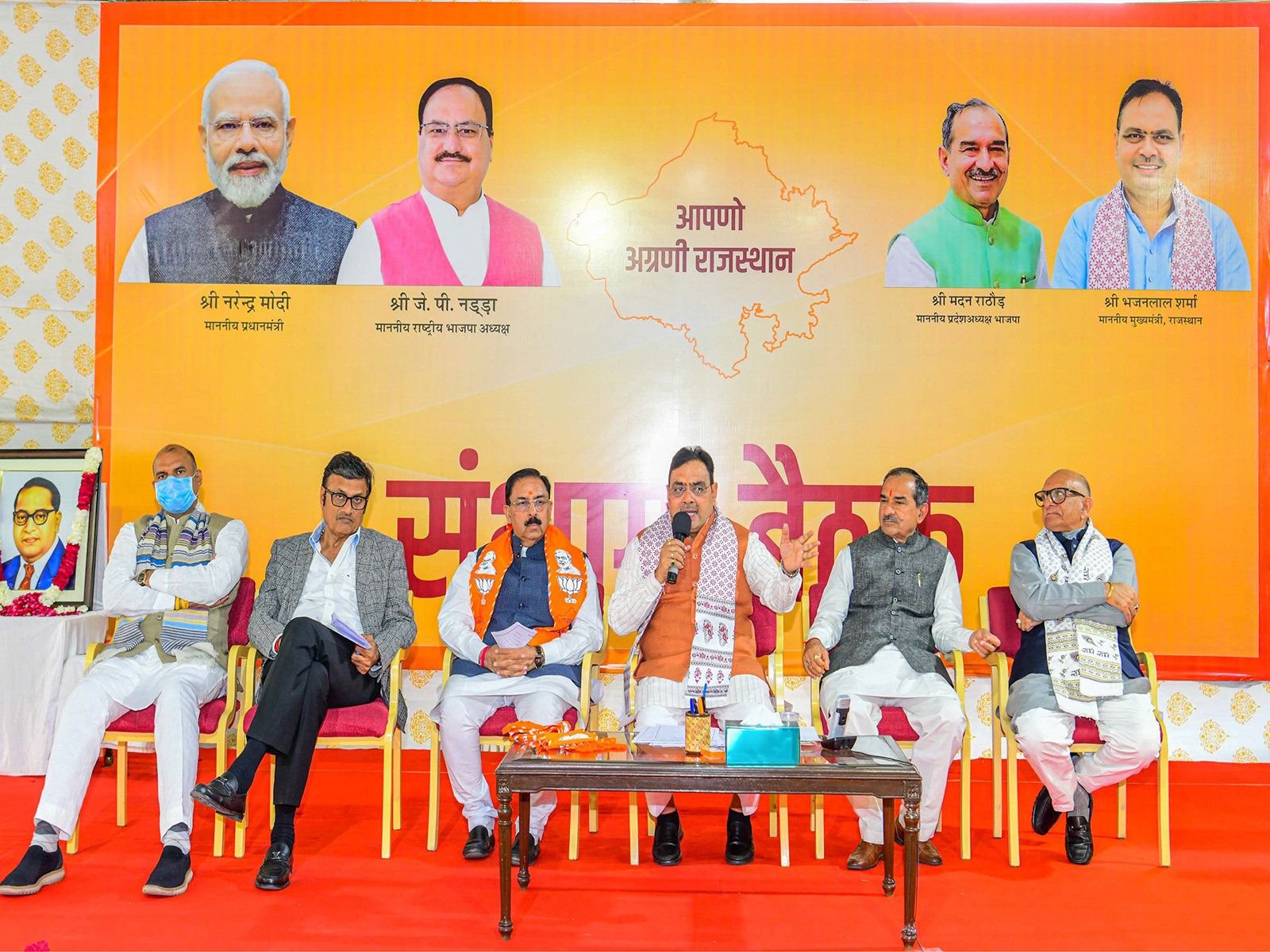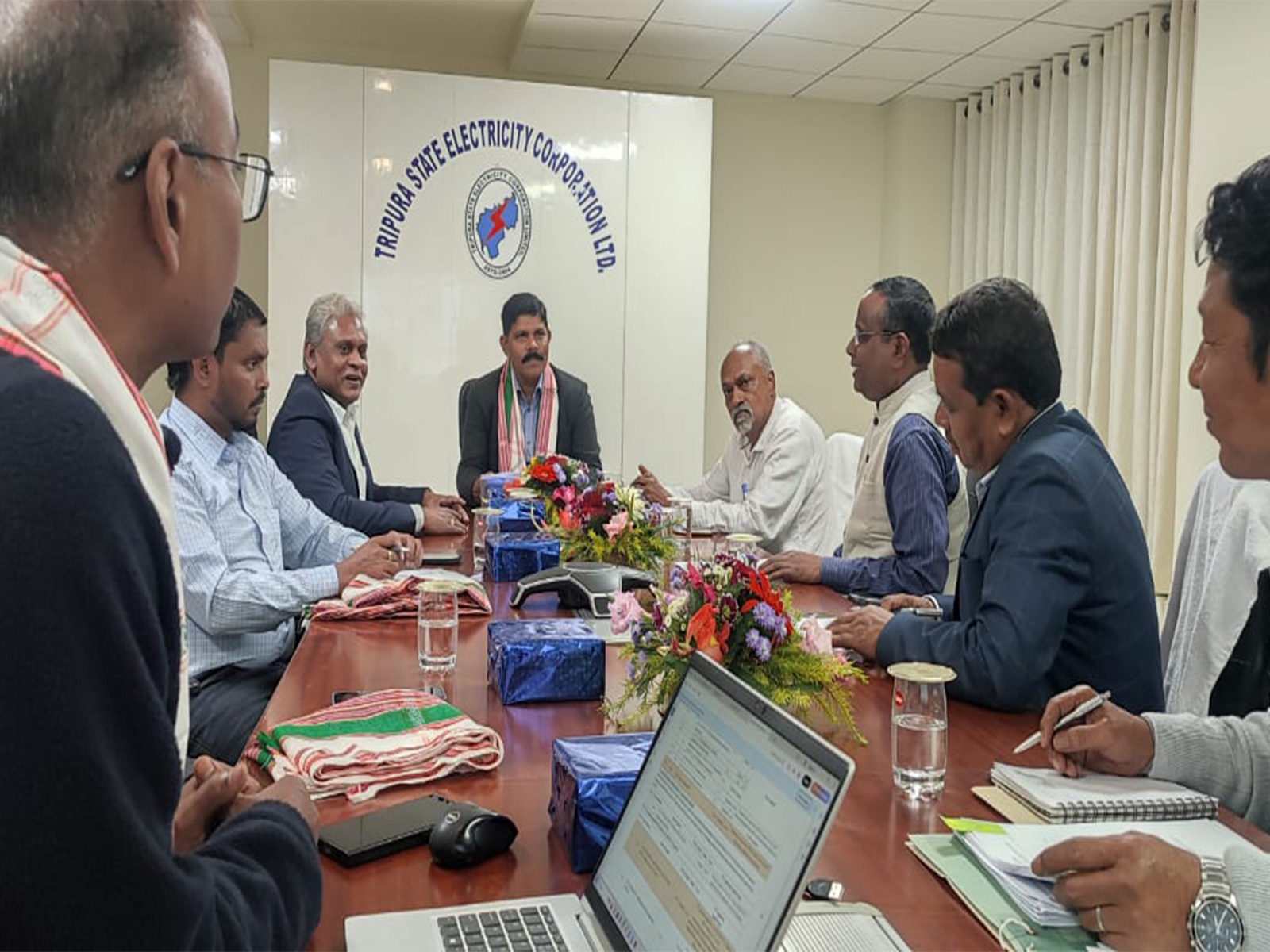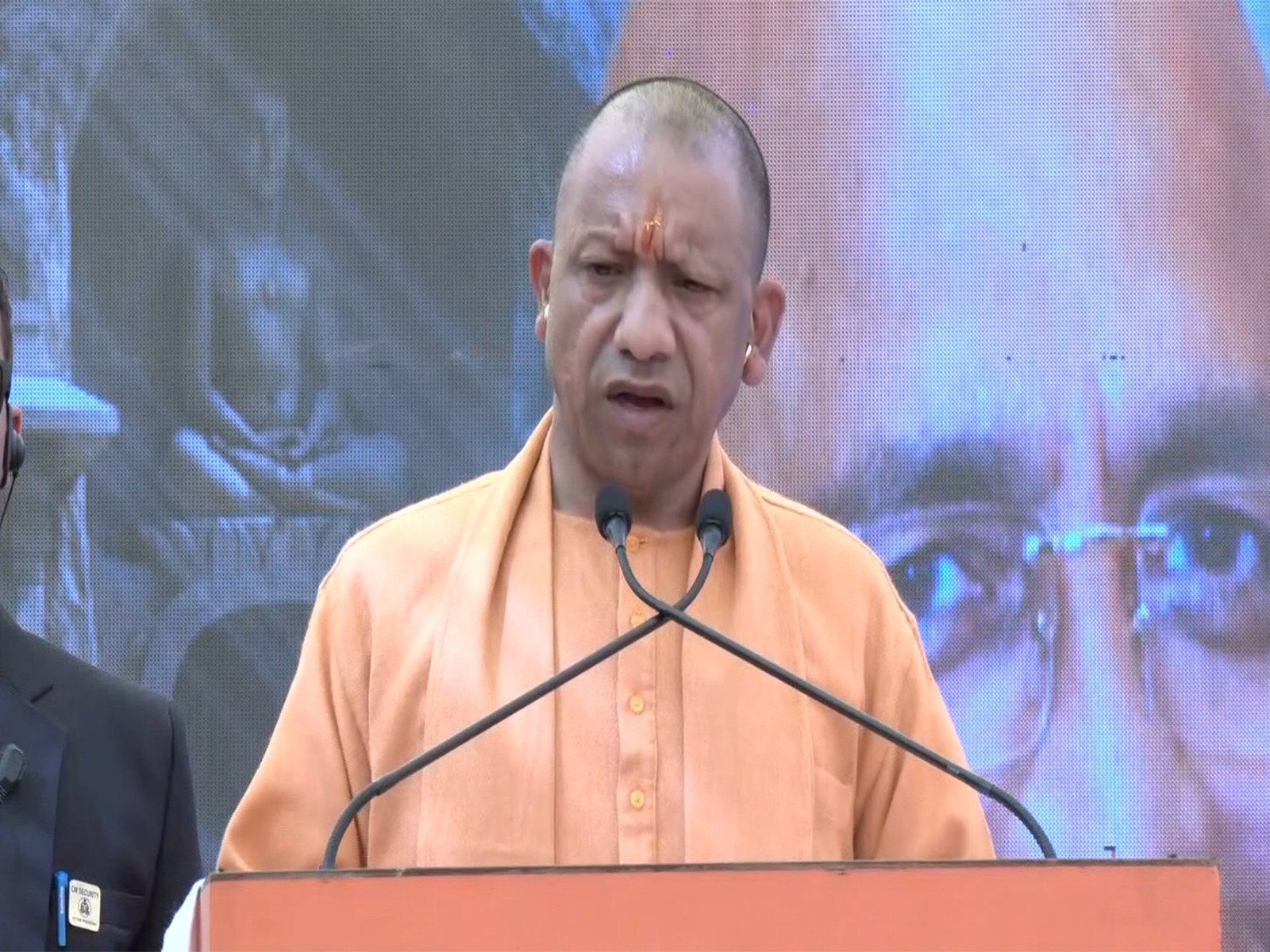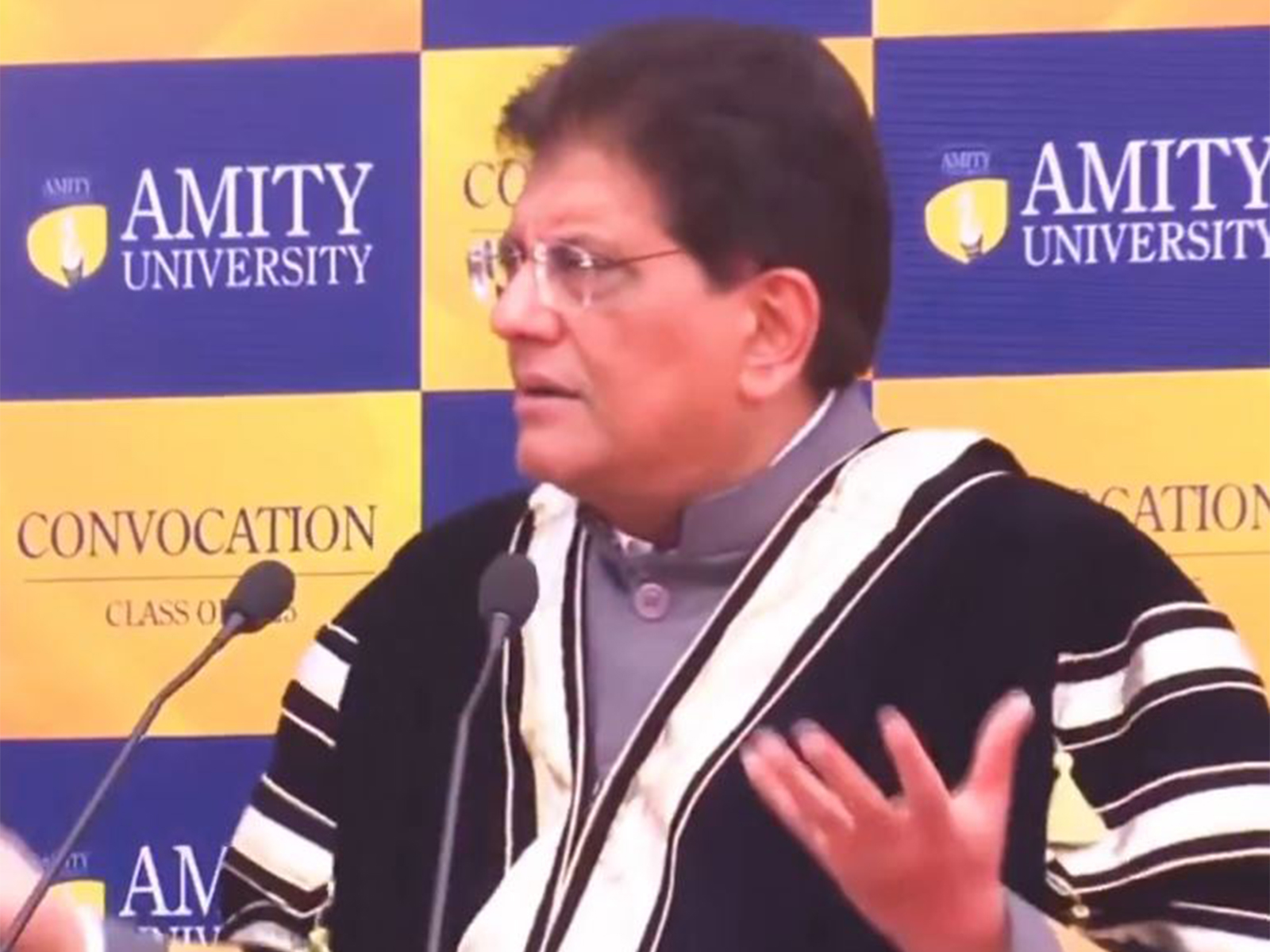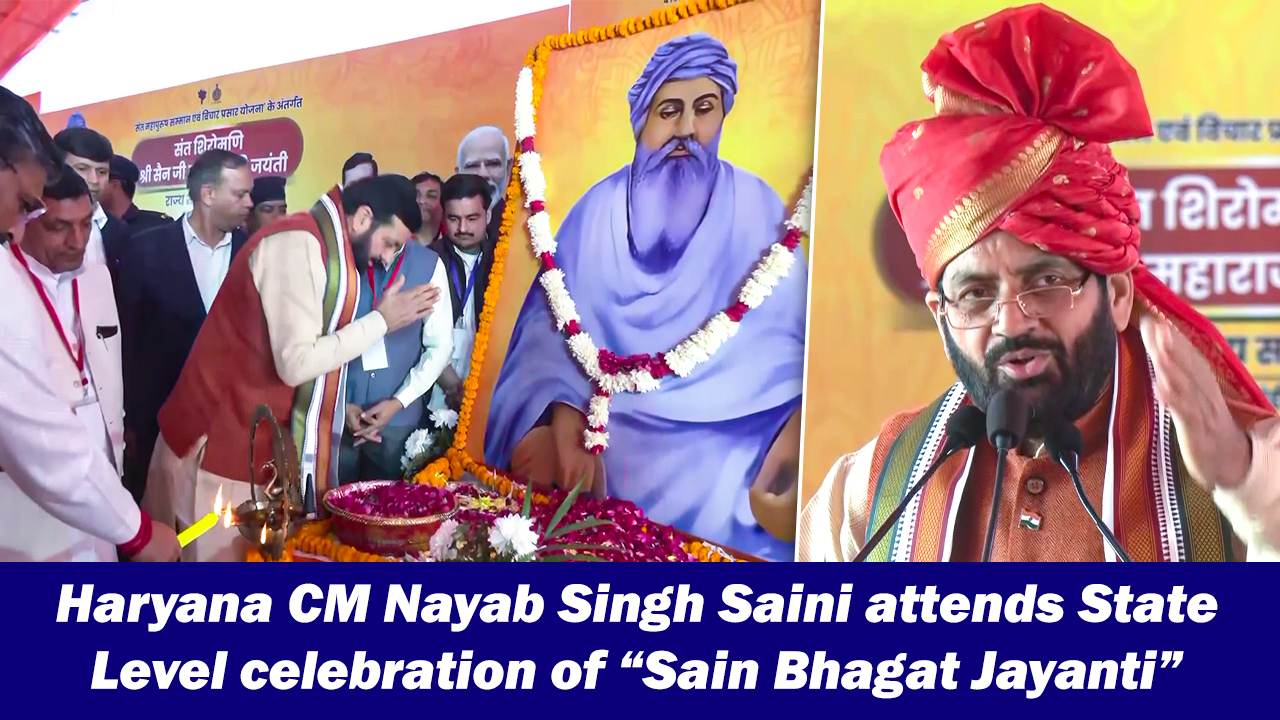"Pictures of Hindu gods, goddesses found on the walls":Advocate Hari Shankar Jain on ASI survey of Gyanvapi mosque
Jan 25, 2024

Varanasi (Uttar Pradesh) [India], January 26 : According to the survey report of the Archaeological Survey of India (ASI), pictures of Hindu gods and goddesses are found on the walls of the Gyanvapi mosque, advocate Hari Shankar Jain, representing the Hindu side, said.
He also claimed that the western wall of the 17th-century Gyanvapi mosque is 5000 years old and it belongs to a Hindu temple.
The ASI survey was ordered by the district court after the Hindu petitioners claimed the Gyanvapi mosque was constructed over a pre-existing temple.
"According to the ASI report, a Hindu temple was destroyed to construct the current structure. The Western Wall is 5000 years old, and it belongs to a Hindu temple. The ASI said that pictures of Hindu gods and goddesses are found on the walls of the structure. Inscriptions are in different languages, including Kannad and Telugu," he said.
"The ASI has also said that the 'Shilalekh' (inscription) installed by Mughal Emperor Auranjeb has been found, which clearly states that a temple was razed down to construct the current structure. The Ground Penetrating Radar (GPR) survey also says that a lot is underneath the sealed area," he added.
Another advocate of the Hindu side, Sudhir Tripathi, said that the ASI, has found sculptures of Hindu deities on the walls of the Gyanvapi complex.
"The ASI in its report has clearly stated everything. The report talks about the pillars and the western wall. Sculptures of Hindu deities and carved architectural pieces were found on the walls," he said.
Lakshmi Devi, a petitioner from the Hindu side, requested a survey of the other parts of the existing structure as well.
"Several pieces of evidence have been found that there was a temple here before. We are very happy. We will request the survey of the other parts too," she said.
Meanwhile, advocate Vishnu Shankar Jain, representing the Hindu side said that the (ASI) in its report has stated that a "temple was razed down in the 17th century" and the western wall of the Gyanvapi mosque is that of a temple.
Talking to ANI on Thursday, Jain said, "ASI has done a lot of detailed scientific study in its report. According to the report, an inscription was found in the so-called mosque. The pillars that are found are from a Hindu temple. The ASI said that the western wall is that of a Hindu temple. Scriptures in different languages are found."
Giving more details, Jain said the ASI has said there was a "pre-existing large Hindu temple" in place of the current structure.
"The ASI has said that terms such as Maha Mukti Mandap are mentioned in these inscriptions, which are of great significance. ASI has concluded that a temple was razed down in the 17th century, and there was a pre-existing large Hindu temple in the place of the current structure. We will move to the Supreme Court and demand that the Vazu Tank area be opened," the advocate said.
The ASI had submitted its survey report to the district court in a sealed envelope last month.
